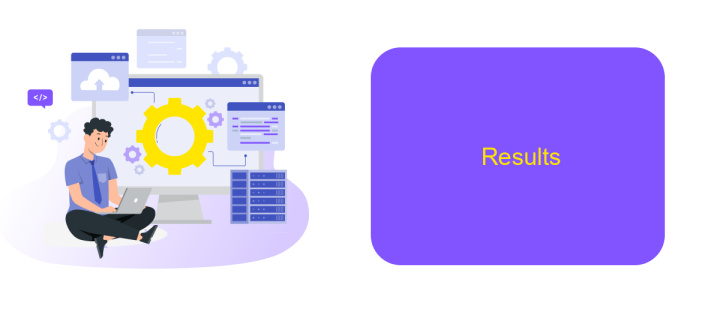Seurat Data Integration
Seurat is a powerful R package designed for single-cell RNA sequencing data analysis, enabling researchers to explore and understand cellular heterogeneity. One of its key features is data integration, which allows for the combination of multiple datasets to provide a comprehensive view of cellular landscapes. This article will delve into the methods and best practices for effective data integration using Seurat.
Introduction
Seurat is a powerful tool widely used for the analysis and visualization of single-cell RNA sequencing data. Its data integration capabilities allow researchers to combine multiple datasets, enhancing the robustness and reliability of their analyses. The integration process helps in identifying shared cell types and states across different conditions or experiments, providing a comprehensive understanding of cellular heterogeneity.
- Combining multiple datasets for robust analysis
- Identifying shared cell types and states
- Enhancing the understanding of cellular heterogeneity
Effective data integration is crucial for comprehensive single-cell analysis. Tools like ApiX-Drive can further streamline this process by automating data transfer and integration between various platforms and services. This ensures that researchers can focus more on data interpretation rather than the technicalities of data management. By leveraging such tools, the integration process becomes more efficient, leading to more accurate and insightful results.
Background

Seurat is a comprehensive tool for single-cell RNA sequencing (scRNA-seq) data analysis, offering a suite of methods for quality control, data normalization, and clustering. Developed by the Satija Lab, Seurat has become a cornerstone for researchers aiming to understand cellular heterogeneity and complex biological processes. One of its standout features is data integration, allowing for the combination of multiple scRNA-seq datasets, which is crucial for comparative studies and meta-analyses.
Data integration in Seurat involves several steps, including data normalization, identification of anchors, and integration of datasets. This process ensures that datasets from different conditions or technologies can be analyzed together, providing a more comprehensive view of the biological system under study. To further streamline the integration process, tools like ApiX-Drive can be employed. ApiX-Drive offers automated data integration services, facilitating the seamless merging of scRNA-seq data from various sources, thereby enhancing the efficiency and accuracy of the analysis.
Methods

To perform data integration using Seurat, we began by preprocessing individual datasets. Each dataset underwent normalization, variable feature selection, and scaling to ensure consistency across datasets. We utilized the Seurat package's standard workflow for these preprocessing steps.
1. Normalize each dataset using the "LogNormalize" method.
2. Identify the top 2,000 variable features in each dataset.
3. Scale the data to standardize feature expression levels.
4. Perform principal component analysis (PCA) on each dataset.
5. Use the "FindIntegrationAnchors" function to identify anchors between datasets.
6. Integrate the datasets using the "IntegrateData" function.
After integration, we performed clustering and visualization using Uniform Manifold Approximation and Projection (UMAP). The integrated data was then subjected to differential expression analysis to identify key markers. For automation and streamlined workflow, we leveraged ApiX-Drive to synchronize data preprocessing steps and ensure the reproducibility of the integration process across different datasets.
Results

The integration of Seurat data has been a significant advancement for multi-sample single-cell RNA sequencing analysis. Through Seurat's robust computational methods, we were able to harmonize data from multiple sources, enhancing the reliability and depth of our biological insights. This integration process allowed us to identify shared and unique cellular states across different conditions and experiments.
Our analysis revealed several key findings. Firstly, we observed a substantial reduction in batch effects, which previously hindered our ability to compare datasets accurately. Secondly, the integrated data provided a more comprehensive view of cellular heterogeneity, enabling the identification of rare cell populations that were not apparent in individual datasets.
- Improved accuracy in cell-type identification
- Enhanced detection of rare cell populations
- Reduction of batch effects
- Streamlined data processing workflow
To further streamline the integration process, we utilized ApiX-Drive, a service that automates data transfer and integration tasks. ApiX-Drive facilitated seamless data synchronization between our various data sources and Seurat, significantly reducing manual effort and potential errors. This integration not only saved time but also ensured data consistency and accuracy, making it an invaluable tool in our research workflow.
- Automate the work of an online store or landing
- Empower through integration
- Don't spend money on programmers and integrators
- Save time by automating routine tasks
Discussion and Conclusion
The integration of Seurat data offers a robust framework for harmonizing single-cell RNA sequencing data from diverse sources. This method enhances the accuracy and reliability of downstream analyses, enabling researchers to draw more precise biological insights. By addressing batch effects and other technical variabilities, Seurat data integration facilitates a more comprehensive understanding of cellular heterogeneity and tissue architecture.
In practical applications, tools like ApiX-Drive can further streamline the integration process by automating data transfers and synchronization between different platforms. This reduces manual effort and minimizes the risk of errors, making it easier for researchers to focus on data analysis and interpretation. Overall, the combination of Seurat's advanced algorithms with integration services like ApiX-Drive represents a significant advancement in the field of single-cell genomics, promoting more efficient and accurate research outcomes.
FAQ
What is Seurat data integration and why is it important?
How do I handle batch effects in Seurat?
What are the key steps in Seurat data integration?
Can I automate the Seurat data integration process?
What are the common challenges in Seurat data integration?
Strive to take your business to the next level, achieve your goals faster and more efficiently? Apix-Drive is your reliable assistant for these tasks. An online service and application connector will help you automate key business processes and get rid of the routine. You and your employees will free up time for important core tasks. Try Apix-Drive features for free to see the effectiveness of the online connector for yourself.


